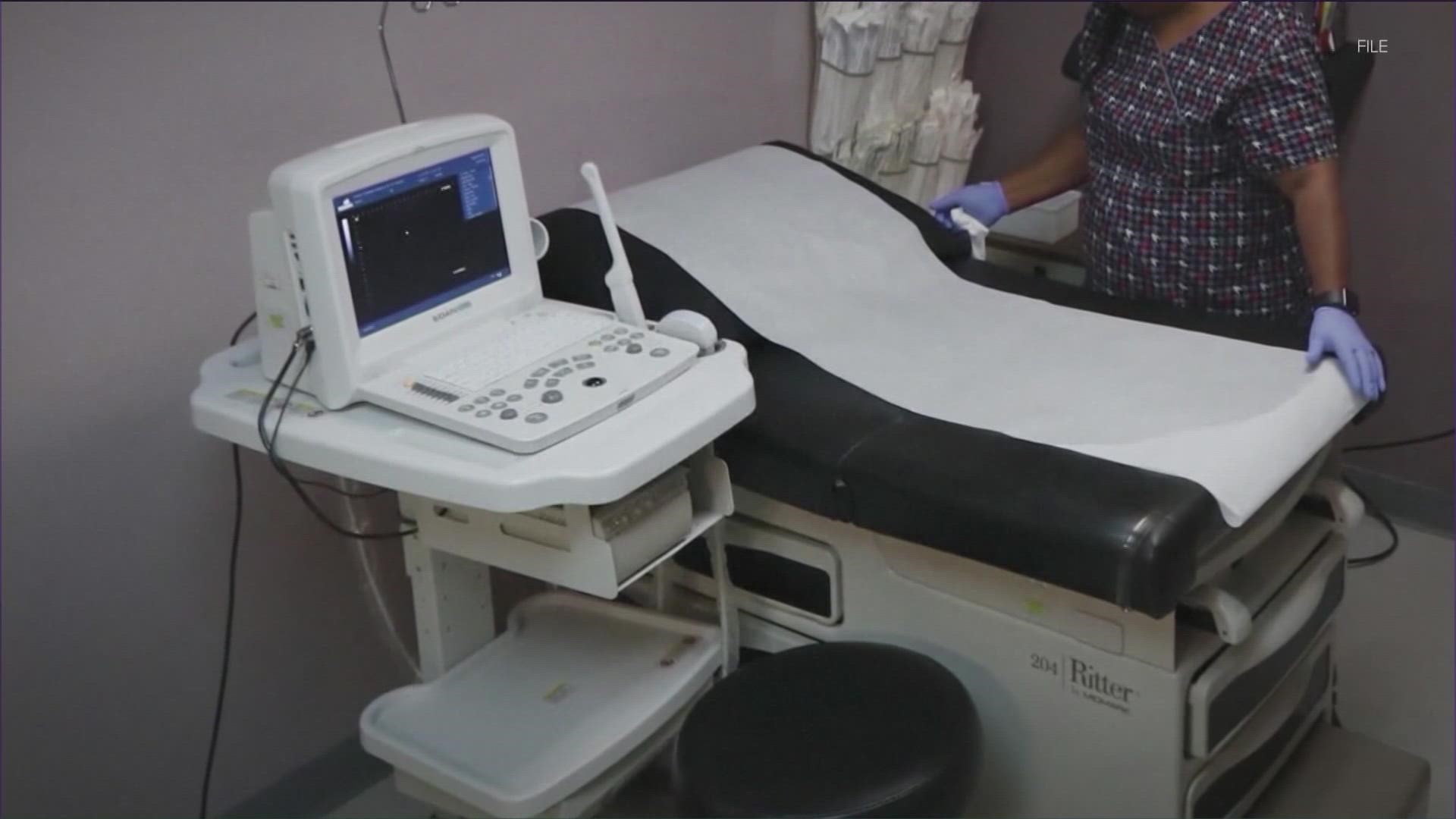AUSTIN, Texas — Editor's note: An earlier version of this story said that performing an abortion would be a second-degree felony punishable by up to life in prison. However, the act of performing an abortion is a second-degree felony unless the fetus dies, in which case it becomes a first-degree felony punishable by up to life in prison.
In late June, the U.S. Supreme Court overturned Roe v. Wade, the legal precedent that established a constitutional right to abortion in the U.S. Two months later, Texas' so-called "trigger law" now goes into effect, further increasing restrictions on abortions in the Lone Star State.
The law, which was written to go into effect 30 days after the Supreme Court issued an official judgement overturning Roe v. Wade, increases the criminal and civil penalties associated with abortion in Texas. Performing an abortion is now a felony punishable by up to life in prison and is subject to a civil penalty of at least $100,000, plus attorney's fees.
The law has only narrow exceptions to save the life of a pregnant patient. The law criminalizes performing an abortion unless the pregnant patient is facing "a life-threatening physical condition aggravated by, caused by, or arising from a pregnancy."
The law also specifically prohibits prosecuting a pregnant patient who undergoes an abortion.
Texas abortion clinics had already stopped performing the procedure, fearing consequences under state laws that were on the books before Roe v. Wade.
Elizabeth Sepper, a professor of law at the University of Texas at Austin, said her concern with the trigger law is the high rate of uninsured Texans and the impact the law could have on expecting moms and babies.
"This also means that when people become pregnant, they're less healthy than they should be. So, lots of low-income people, when they become eligible for Medicaid, when they become pregnant, have a really long delay. They might not see a doctor even until they're five months into their pregnancy," Sepper said.
Sepper predicts that the number of women seeking an abortion who will be unable to get one will increase by 10% to 20%, possibly higher. She also said because Texas is very rural in places, there are areas where women don't have access to a physician who is able to deliver, which is another concern.
Texas already had a near-total ban on abortion in place. Senate Bill 8, which was passed in the fall of 2021, allows any private citizen to sue anyone who "aids or abets" in an abortion after a fetal heartbeat can be detected, or about six weeks into pregnancy.
Idaho and Tennessee also have a trigger laws going into effect on Thursday. North Dakota's trigger law will go into effect on Friday.
Britny Eubank on social media: Twitter
PEOPLE ARE ALSO READING:
- We spoke to people in Austin about their feelings on the new loan forgiveness plan. Here's what they said
- New study shows water loss is a major issue in Texas
- Uvalde CISD fires police chief Pete Arredondo, three months after Robb Elementary massacre
- Austin doctor shares monkeypox insights as students start back on college campuses

